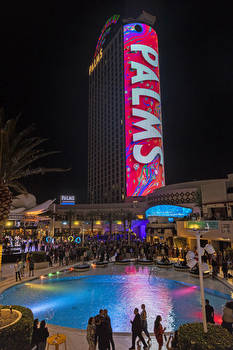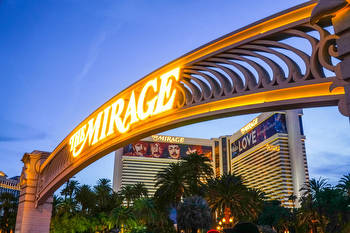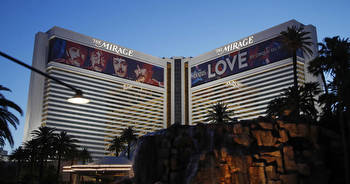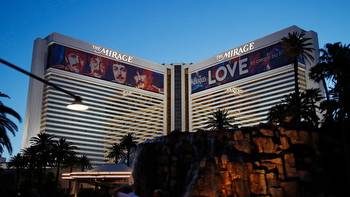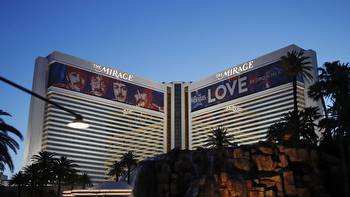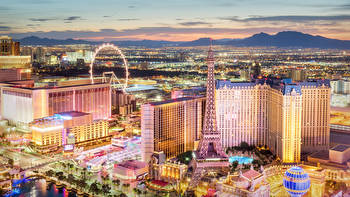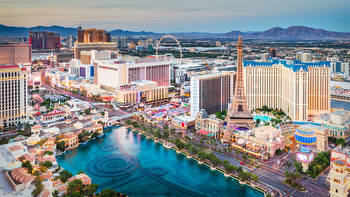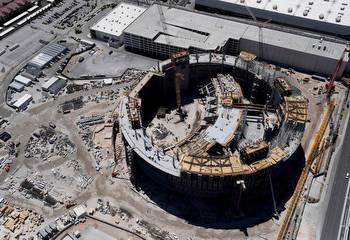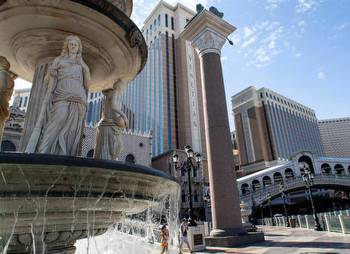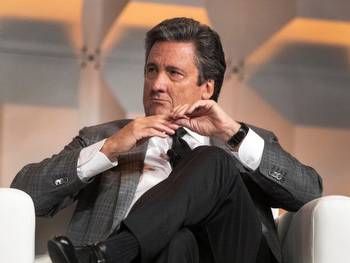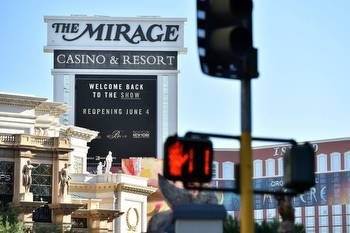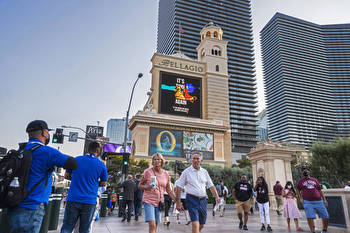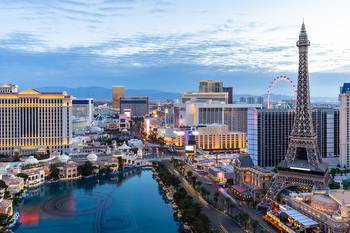MGM agrees to sell Mirage Casino to Hard Rock for $1bn
MGM Resorts International (MGM) agreed this week tosell operationsof its Mirage Casino to Seminole Gaming subsidiary Hard Rock Internationalfor $1.075bn (£810.5m), marking the latest shuffling of ownership along the resurging Las Vegas Strip.
No real estate will change hands in the deal and the $1.075bn will go in cash to MGM, which purchased the operating rights in 2000 for $4.4bn (£3.3bn). MGM stock has trended upward slightly on the news.
It has gained 33.5% for the year, signalling an upward trend for Vegas casinos and properties. Meanwhile, companies like Las Vegas Sands, that invested significantly in Macau – known as the Las Vegas of Asia – have been battered by enduring effects of the pandemic, with Sands’ stock falling by a roughly commensurate 37.5% in 2021.
“This announcement marks the culmination of a series of transformational transactions for MGM Resorts during the last several years,” said Paul Salem, chair of MGM’s board of directors.
“The monetisation of our entire real property portfolio, together with the addition of CityCenter and our agreement to acquire the Cosmopolitan of Las Vegas, will position the company with a fortress balance sheet, premier portfolio, and significant financial resources to pursue our strategic objectives.”
A new chapter in Mirage history
Developed by Steve Wynn, the Mirage was the first resort of its grand scale when it was erected in 1989, and its signature volcano seemed to dictate that other resorts of its kind would add their own distinctive elements.
The elaborate fountains of the Bellagio, pyramid structure of the Luxor, golden Lions of the renovated MGM Grand, mock Eiffel Tower of Paris, replica Statue of Liberty of New York, New York, and more would follow as mega-resorts with themes became the standard on the Strip.
Now, the Mirage will undergo renovations and augmentations, including a guitar-shaped hotel. The Mirage name was retained by MGM, but licensed royalty-free to its new operators for a maximum transitional period of three years.
Hard Rock International will rebrand the hotel and projects to bolster its revenue and presence on the ultra-competitive stretch of tourist-laden land with this acquisition.
“When complete, Hard Rock Las Vegas will be a fully integrated resort welcoming meetings, groups, tourists and casino guests from around the world to its nearly 80-acre centre Strip location,” Hard Rock chair Jim Allen said.
Changing landscape
MGM CEO Bill Hornbuckle had revealed plans to sell the Mirage in a recent earnings call discussing Q3 results.
The company will continue to operate at least nine other casino-resort properties on the Strip, including the MGM Grand and Bellagio. It also maintains significant stakes in the multipurpose CityCenter and T-Mobile Arena, which hosts NHL hockey and other events.
In September, MGM initiated the purchaseof the Cosmopolitan of Las Vegas casino and hotel for $1.65bn (£1.24bn).
As Salem alluded to, MGM has been reorganising its near pervasive presence in Las Vegas. And it is not alone. Earlier this year, Las Vegas Sands sold its Las Vegas properties for $6.25bn (£4.71bn).
Companies with ties to indigenous peoples have been active as well. The California-based San Manuel Mission Band of Indians is in the process of acquiringthe Palms Casino Resort. Mohegan Sun operates the Virgin Hotels Las Vegas’ casino, and now the Seminole Tribe will become the third indigenous entity on the Strip.
“Who doesn’t want to be in Las Vegas? It’s the gaming Mecca of the world and the place to be,” San Manuel CEO Laurens Vosloo told the Las Vegas Review-Journal.
Rate this article
Rate this article:
Ready to get started?
Capital.com Download
The difference between trading assets and CFDs
The main difference between CFD trading and trading assets, such as commodities and stocks, is that you don’t own the underlying asset when you trade on a CFD.
You can still benefit if the market moves in your favour, or make a loss if it moves against you. However, with traditional trading you enter a contract to exchange the legal ownership of the individual shares or the commodities for money, and you own this until you sell it again.
CFDs are leveraged products, which means that you only need to deposit a percentage of the full value of the CFD trade in order to open a position. But with traditional trading, you buy the assets for the full amount. In the UK, there is no stamp duty on CFD trading, but there is when you buy stocks, for example.
CFDs attract overnight costs to hold the trades (unless you use 1-1 leverage), which makes them more suited to short-term trading opportunities. Stocks and commodities are more normally bought and held for longer. You might also pay a broker commission or fees when buying and selling assets direct and you’d need somewhere to store them safely.
Capital Com is an execution-only service provider. The material provided on this website is for information purposes only and should not be understood as an investment advice. Any opinion that may be provided on this page does not constitute a recommendation by Capital Com or its agents. We do not make any representations or warranty on the accuracy or completeness of the information that is provided on this page. If you rely on the information on this page then you do so entirely on your own risk.









